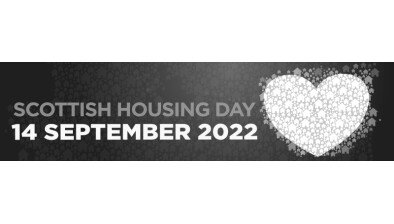How the new immigration rules affect social landlords
John Perry and Sam Lister from the CIH policy team help social landlords navigate their way through the changes made to the UK’s immigration rules on 1 January 2021.

Starting on 1 January 2021, radical changes were made to the UK’s immigration rules. These also meant that new rules took effect on who is eligible for a housing allocation, homelessness help and benefits. With the ending of ‘free movement’ to and from the EU, the changes principally affect European nationals and their family members, although they don’t affect people from the Republic of Ireland. Whether a citizen of a European country (specifically, someone from the European Economic Area or Switzerland) or a family member (whether or not they are European) can get housing help depends on a set of key factors such as when they came to the UK and whether they have applied to the EU Settlement Scheme to regularise their status.
Anyone from an EEA country who was living in the UK before the Brexit transition period ended at 11.00pm on 31 December 2020 keeps the same entitlements that they had beforehand. Over two million European nationals have now been granted ‘settled status’ under the scheme, which is the equivalent of ‘indefinite leave to remain.’ They and their family members are fully entitled to housing help if they need it. To get settled status you have to show you have lived in the UK for five years, so those who haven’t yet met this test may be granted ‘pre-settled status.’ This means they do not yet have entitlements to housing help, unless they had it before 31 December 2020 for another reason, such as being an EEA worker or self-employed person.
What about the people who have not yet applied to the scheme? During the ‘grace period’ until 30 June, until they apply to the EU Settlement Scheme they will have to prove they have some other entitlement to housing help, e.g. as an EEA worker, and that they were living in the UK before 31 December 2020. They will have to show both their right to remain on 31 December and their right to remain on the date they apply for benefits. If they can do this, they and their family members are eligible.
It is essential that any European nationals still in the UK apply to the scheme. If they don’t, unless they have very good reason for a late application, on 1 July 2021, they could lose all their rights to be in the UK even if they are longstanding residents. As ‘overstayers’ they potentially become embroiled in the hostile environment and all that it entails, such as detention and removal, as happened in the Windrush scandal.
After 30 June 2021, people who have already applied to the EU Settlement Scheme keep any entitlement they had before, until they get a decision about their status. So do any people who have made late applications and their applications have been accepted, or those who are appealing against a decision under the scheme and have not yet had an answer.
To make life complicated for housing providers, those with settled status do not get a passport stamp, but have to show digitally that they have passed through the EU Settlement Scheme. European nationals who need housing help and don’t yet have settled status will have to show any documentation they have that proves their entitlement.
In England (but not in the rest of the UK), tenancies in the private sector (or by housing associations when they are not via a local authority nomination) are subject to the tenant showing they have a ‘right to rent’ by producing their passport or other suitable document. The government’s guide for landlords confirms that European citizens in these groups can continue to prove their right to rent, simply using their passport or an identity card from their home country. They should not be asked for evidence of settled status or pre-settled status until after 30 June 2021, but they can show their status online if they choose to do so.
Social landlords are likely to have European nationals living in their stock and European staff members whose immigration status will be at risk if they haven’t applied to the EU Settlement Scheme – especially if they fail to apply before the end of June. It’s a good idea to help your tenants and staff secure their status, and there are many tools available to help you do this. The NHF has a briefing paper for social landlords, produced in partnership with Settled, a charity which helps Europeans secure their status. Help is also available in special cases. For example, help for children in care or leaving care is available from ADCS and from Settled; Roma people can get help from the Roma Support Group on 07440 743866 or 07459 319706.
For more details on eligibility and sources of help, make sure your staff have access to and make regular use of the CIH Housing Rights website, which has details of the EU Settlement Scheme, and how to get specialist advice where you live. It has pages to help different kinds of European national in the UK, such as workers and family members. It also has a Brexit news page so you can keep up with the latest developments. A section of the site is exclusively for Scotland.
CIH is keen to hear about problems faced by European nationals and about projects to help them regularise their status. Do get in touch with us by email (policyandpractice@cih.org).
- John Perry is a policy advisor at the Chartered Institute of Housing. He edits the UK Housing Review and also advises on a wide range of subjects including planning, local authority finance, plus much more. John is a chartered CIH member.
- Sam Lister is a policy and practice officer at the Chartered Institute of Housing. He leads policy issues surrounding on welfare, housing law and the private rented sector. Sam is a chartered CIH member.








